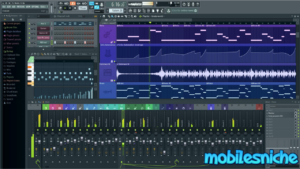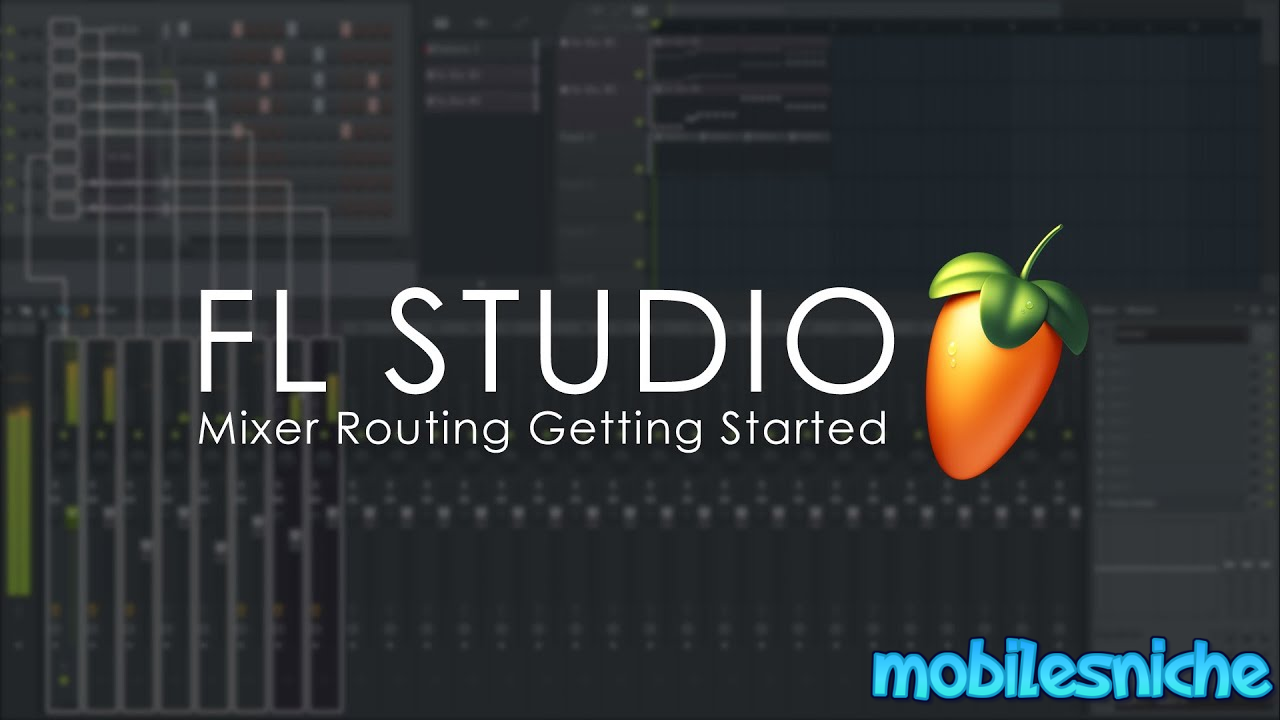FL Studio, a popular digital audio workstation (DAW) among music producers, offers a plethora of features that cater to both beginners and advanced users. Known for its user-friendly interface and extensive library of plugins, FL Studio has secured its place in the music production realm.
In this blog post, we delve into an in-depth review and analysis of FL Studio, exploring its unique capabilities, pros and cons, and why it has become a go-to choice for many music creators. Whether you’re a seasoned producer looking to enhance your workflow or a novice eager to embark on your music production quest, this review aims to provide valuable insights into what FL Studio has to offer.
Stay tuned as we unravel the world of FL Studio, uncovering its features, usability, and overall impact on music production. Whether you’re thrilled about trying out a new DAW or seeking a game-changer in your production process, FL Studio might just be the cutting-edge solution you’ve been looking for.
Overview of FL Studio
FL Studio, also known as FruityLoops, is a popular digital audio workstation (DAW) that has gained recognition for its versatile features and user-friendly interface. Let’s delve into what sets FL Studio apart in the music production software market.
Key Features of FL Studio:
- Pattern-based Workflow: FL Studio’s unique pattern-based workflow allows users to arrange music in a non-linear manner, making it easy to experiment with different ideas and structures.
- Vast Library of Plugins: With a wide range of plugins and virtual instruments included, FL Studio offers creative flexibility for producing various music genres.
- Automation and Editing Tools: FL Studio simplifies the process of automating effects and editing audio, enabling users to fine-tune their tracks with precision.
- MIDI Support: The MIDI composition tools in FL Studio provide seamless integration for controlling external hardware and software instruments.
- Real-Time Effects: FL Studio offers real-time effects processing, allowing users to apply effects and modifications instantly to their tracks.
Pros and Cons of FL Studio:
Pros:
- Easy and Smooth Workflow
- Stable Performance
- Versatile Automation Capabilities
- Wide Range of Virtual Instruments
- Colorful and Intuitive User Interface
Cons:
- Steeper Learning Curve for Beginners
- Limited Audio Recording Features
- Advanced Features may require Additional Plugins
- Resource-Intensive on CPU for Complex Projects
FL Studio continues to evolve as a prominent player in the music production software realm, catering to both newcomers and seasoned producers alike with its array of features and tools.

FL Studio Review
FruityLoops, is a popular Digital Audio Workstation (DAW) among music producers for its versatile features and user-friendly interface. Let’s dive into the review of FL Studio covering different aspects of this software.
User Experience and Interface
The user experience of FL Studio is characterized by its intuitive and user-friendly interface. Music producers appreciate the customizable layout that allows them to arrange tools and features according to their workflow preferences. The sleek design and easy navigation contribute to a smooth music production process, enhancing creativity without unnecessary hurdles. The interface’s responsiveness and clarity make it a favorite among both beginners and seasoned professionals.
Functionality and Tools
FL Studio offers a wide array of tools and functionalities to cater to the diverse needs of music producers. From virtual instruments to audio effects and automation features, FL Studio provides a comprehensive toolkit for creating music across genres. The availability of high-quality sound libraries and plugins further enriches the creative possibilities within the software. The seamless integration of these tools empowers users to experiment, innovate, and bring their musical ideas to life effortlessly.
Performance and Stability
When it comes to performance and stability, FL Studio excels in delivering a reliable platform for music production. The software is optimized to run efficiently on varying system configurations, ensuring smooth operation even on less powerful hardware. Music producers value FL Studio for its stability during intensive production tasks, minimizing crashes and interruptions. The responsiveness of the software enables quick and seamless workflow, allowing users to focus on their music without technical distractions.
Overall, FL Studio stands out as a versatile and powerful DAW that offers a compelling blend of functionality, user experience, and performance. Whether you are a beginner exploring music production or a professional seeking a robust tool for your projects, FL Studio proves to be a valuable asset in the realm of digital music creation.
FL Studio User Reviews
FL Studio, also known as Fruity Loops, has garnered a mix of positive and critical reviews from its users. Let’s delve into what users have to say about their experience with this popular music production software.
Positive User Feedback:
- Impressive Features: Users appreciate FL Studio’s vast array of features that cater to both beginners and advanced music producers. The intuitive interface and seamless workflow stand out as major strengths.
- Excellent Support: Many users praise the responsive customer support provided by FL Studio. Whether it’s troubleshooting technical issues or seeking guidance on using specific functions, the support team is known for being helpful and quick to respond.
- Frequent Updates: One of the key benefits highlighted by users is the regular updates and new features introduced by FL Studio. This commitment to continuous improvement ensures that users have access to the latest tools and enhancements.
- Versatile Experience: Users value the versatility of FL Studio, allowing them to create a wide range of music genres with ease. From electronic dance music to intricate sound design, the software is lauded for its adaptability.
Critical User Feedback:
- Steep Learning Curve: Some users find FL Studio to have a steep learning curve, especially for beginners entering the world of music production. Navigating through the various functions and understanding the software’s capabilities can be challenging initially.
- Software Bugs: A common critique revolves around occasional software bugs and stability issues reported by users. While FL Studio is acclaimed for its features, the presence of bugs can disrupt the creative process and lead to frustration.
- Lacking Features: Despite its extensive feature set, some users feel that FL Studio lacks certain advanced functionalities, particularly in the realm of vocal editing. This limitation can be a drawback for users seeking more specialized tools.
In conclusion, FL Studio garners praise for its robust features, user-friendly interface, and excellent support, while also facing criticism for its learning curve, occasional bugs, and perceived feature gaps. As with any software, user experiences can vary based on individual preferences and requirements.
Comparative Analysis
Music producers often find themselves torn between different Digital Audio Workstations (DAWs) when it comes to choosing the right tool for their creative endeavors. This section delves into a comparative analysis of FL Studio with other popular DAWs, shedding light on the unique features, functionalities, and overall user experience.
FL Studio vs. Ableton Live
When comparing FL Studio and Ableton Live, two heavyweight DAWs in the music production realm, several key differences come to light. FL Studio, known for its user-friendly interface and extensive library of native plugins, caters well to beginners and electronic music enthusiasts. On the other hand, Ableton Live excels in live recordings and is favored for its versatility in handling acoustic and organic music genres. The workflow in FL Studio may feel more intuitive for electronic music production, while Ableton Live stands out for its performance in live settings. Depending on the style of music production and personal preferences, choosing between FL Studio and Ableton Live boils down to workflow preferences and specific project requirements.
FL Studio vs. Logic Pro
In the comparison between FL Studio and Logic Pro, focusing on user interfaces, included instruments, and overall value for music producers is essential. FL Studio boasts a visually appealing and easy-to-navigate interface that appeals to both beginners and seasoned producers. Its vast array of included instruments and plugins provides a solid foundation for music creation. Conversely, Logic Pro stands out for its sleek design and professional-grade virtual instruments, making it a preferred choice for many professionals. While FL Studio offers great value for its price point and extensive feature set, Logic Pro’s premium feel and sophisticated tools cater to those seeking a comprehensive music production experience. Ultimately, the choice between FL Studio and Logic Pro comes down to personal workflow preferences, desired features, and budget considerations.
In a competitive landscape of DAWs, each tool brings its own set of strengths and weaknesses to the table. Understanding the nuances between FL Studio and its competitors like Ableton Live and Logic Pro can empower music producers to make informed decisions based on their specific needs and creative aspirations. By weighing factors such as workflow, feature sets, user interfaces, and target music production styles, producers can leverage the unique capabilities of each DAW to enhance their creative process and bring their musical visions to life.
Conclusion
After exploring the features and capabilities of FL Studio in this article, it is evident that this music production software offers a comprehensive toolkit for both aspiring musicians and experienced producers. FL Studio caters to a wide range of user profiles, from beginners looking to experiment with music creation to seasoned professionals seeking a versatile platform for their projects.
Throughout the review, we highlighted the intuitive interface, extensive library of plugins, and robust editing tools that make FL Studio a top choice in the music production industry. The software’s user-friendly design allows for seamless workflow and creativity without compromising on functionality.
For budding musicians, FL Studio provides an ideal platform to nurture their talent and unleash their creativity. Its affordability and diverse features make it an excellent starting point for those venturing into music production for the first time. On the other hand, established producers will appreciate the advanced functionalities and customization options that FL Studio offers, allowing them to push the boundaries of their creativity.
In conclusion, FL Studio emerges as a powerhouse in the music production realm, empowering users to bring their musical visions to life with ease. Whether you are a novice seeking to explore the world of music creation or a seasoned professional looking for a reliable and feature-rich software, FL Studio stands out as a game-changer in the industry. Its impact on the music production landscape is undeniable, making it a must-have tool for anyone passionate about crafting unforgettable tunes.
For more Slot Reviews like this, Visit our Website Here.


